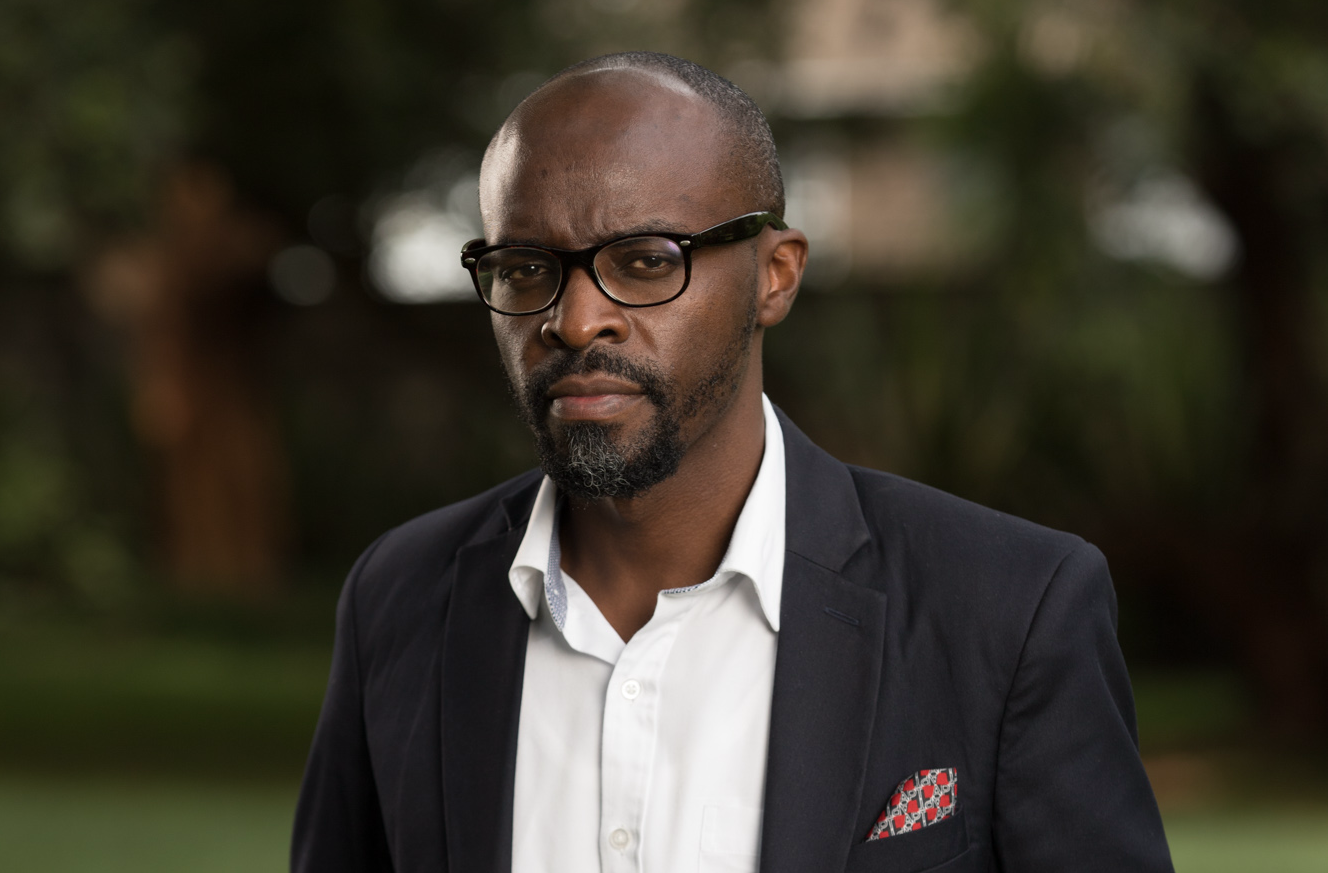OP-ED: Philosophy to fintech for agro-processors feat. Ochich Magero
Ochich Magero shares insights from his journey, evolving from philosopher to fintech founder, with a mission to transform financial inclusion for agro-processors across Africa.

Meet Ochich Magero
Every time my path crosses with Kenyan multi-hyphenate innovator and entrepreneur, Ochich Magero, I leave insight-rich.

When we first met in February 2017, he and Berthin Ntekezere were intent on breaking the monopoly of foreign participation in Africa’s tech venture capital scene. I remember being struck by the audacity of their aspiration and, frankly, given how closed that posse was at the time, sensing they were going to struggle. And struggle (and fail) they did. However, what has been instructive is watching Magero, with whom I've kept in touch, glean lessons from failures and evolve his entrepreneurial outlook and practice.
Magero’s eclectic professional experience spans the private, non-profit, for-profit, and government sectors in Africa. He advises and serves on the boards of several start-ups and has worked closely with a slew of impactful organisations and institutions, including Finnovation Africa Series, Seamless Africa, Ongoza Forum, Shona Accelerator, Lawyers Hub Kenya, VC4A, Nairobi Innovation Week, Startupbootcamp, Mkono Impact Fund, European Investment Bank, French Development Agency, and Principles for Responsible Management Education - UN Global Compact, among others.
I’m stoked to have Magero hijack this week’s Tech Tides Africa column to reflect on the influences and experiences shaping his current entrepreneurial focus—driving financial inclusion for African agro-processors as co-founder and CEO of TradePulse Inc.
Magero’s insights. In his words:
A gliding dreamer at 12
My entrepreneurial journey unofficially began at 12, obsessed with gliders. My brothers Calestor Kizito and Pascal Walker and I set out to build one, with my younger brother, Pascal, as the test pilot. Luckily, our mom intervened before any cliff diving ensued. This was my first start-up. (As it happens, both my brothers went on to become engineers.)
In high school, my friends and I formed a group called NC (Neuro-Consortium) to research fuel cell cars, tablet computers, and robotics. Through that exhilarating experience, I learned the importance of first mastering the basics.
Lessons in resourcing and timing
Armed with a degree in Philosophy from Urban Pontifical University and an MBA from Jomo Kenyatta University of Agriculture and Technology, my formal entry into the start-up world was with Footprintnow, a location and community network platform I founded circa 2009/10. Despite gaining media attention, I shelved the project after two years due to timing and financial challenges. This experience taught me the importance of timing in tech and the high cost of running a start-up without stable income.
Classrooms and conference rooms
Transitioning from entrepreneur to educator, I joined Jomo Kenyatta University of Agriculture and Technology as a lecturer. Invited for my academic blend of philosophical and business studies, I taught courses like Business Strategic Management and Leadership & Effective Governance. I enjoyed teaching, but grading exams felt like reading the same story 200 times.
Next, I became a researcher at the Kenya National Commission for UNESCO, providing technical guidance on projects spanning education, natural sciences, social sciences, culture, communication, and peace. This role broadened my perspective on global issues and honed my research skills, with local and international travel exposing me to Africa’s realities and opportunities. Amidst this, I toyed with entrepreneurial ideas, like "Mzikify"—a Spotify for local music. I never feared trying; not trying numbs me. Failing is normal and comes with lessons.
Corporate curiosity
Curious about the private sector, I joined Kip McGrath Education Centres as business development manager for Africa. This role demonstrated the transformative power of education in addressing literacy and numeracy gaps. My UNESCO background equipped me with the technical acumen needed there. Later, I served as Africa regional advisor and Kenya country manager Kenya for Think Equal, an educational institution focused on social and emotional learning for young learners, founded by filmmaker turned activist Leslie Udwin.
Working directly with Udwin was incredible. Championing equality and opportunities for diverse children opened my eyes to the power of deliberate inclusion initiatives. This was further cemented when I took on other roles within educational organisations like EDU360 and Cognition Education, helping them grow their ventures on the continent.
Twitter connections and venture capital
Unable to stay away from start-ups, I jumped back into the ecosystem. In 2016, noticing the difficulty of raising funding, I co-founded Afrinet Capital with Berthin Ntekezere, whom I met on Twitter. Afrinet Capital aimed to connect African tech entrepreneurs with international investors. This venture was tougher and more long-term than expected, with fewer successes and many failures. Timing was key, but the lessons were immense.
In 2019, Linda Bonyo and I worked together to establish Lawyers Hub, now a significant Pan-African digital, law, data governance, and policy think tank. This marked a milestone in my career, and led to me diving into some non-traditional areas.
A bid to revolutionise finance
My involvement with the Lawyers Hub opened the door to several interesting projects, including the development of Mkono Impact Fund in 2020, which I co-founded with Canadian entrepreneurs Anne Sophie, Olivier Babin, and Anthony Murray. Mkono Impact Fund, reminiscent of Kiva but tailored for Africa, offers interest-free loans to small businesses in Kenya and Tanzania. After helping establish and run the fund in Kenya, I now provide strategic support by serving on its board.
Around the same time, I also joined the board of Picha Images, a digital media platform focusing on augmented and mixed reality, co-founded with Kenyan filmmaker and photographer Rich Allela.
Empowering agro-processors with TradePulse
A pivotal moment came in early 2023 when I joined Antler East Africa in Nairobi, a top venture builder program. There, I met my co-founder, Dogan Dincer, a structured finance professional with deep expertise in B2B SaaS financial and growth strategies. Our shared passion for solving grassroots problems led us to found TradePulse.
Through market engagement, we discovered that small and medium businesses like agro-processors and light manufacturers are digitally and financially excluded. TradePulse aims to change this with a mobile-first, light Software as a Service (SaaS) tool for cashflow tracking and embedded revenue-based financing. It helps businesses manage orders, issue invoices, track receivables, and reconcile cashflow, providing instant short-term working capital loans tailored to their needs.
TradePulse is gaining traction, with significant early adoption and strong interest from partners, including investors and financial institutions. We believe we’re poised to transform how agro-processors and light manufacturers manage finances and sustain operations.
The future of Africa’s SMEs
Africa’s growth and sustainability, with its population projected to reach 2.5 billion by 2050, depend on the capacity of local economic drivers like small and medium businesses. I advocate for innovative business models and technology to unlock Africa’s socio-economic potential.
My journey, marked by resilience and a willingness to do uncomfortable things, aims to solve some of Africa’s most pressing challenges. In Africa, solutions must pass the village test—not just the mom test. To build something truly transformative, we must question everything, embrace learning and unlearning, and persist through challenges. By empowering local businesses and embracing innovative financial solutions, we can unlock unprecedented growth and sustainability for the continent.
Editorial Note: A version of this opinion editorial was first published by Business Report on 30 July 2024.

